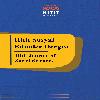Kur'an'ı Anlamada Müslüman İlahiyatçıların Metodolojisi
Biz bu yazımızda kelamın Kur’an’ı anlama kuramını ortaya koyacak, buna ilişkin sorunları belirleyecek ve yeni bir anlam arayışının imkanını tartıştık. Meseleye böyle bir perpektiften bakarsak, Kelamın Kur’an’ı anlamada yeri ve önemi nedir? Sorusu daha da bir önem kazanır. Kelamın İslam’ın erken dönemindeki rolünü yeniden kazanması için, başlangıçta dayandığı iki temel unsur, akide ve siyaset, birbirine eşlik etmelidir. Kelam, iftilafın vahşi yüzünü gösteren saf kimlik iddiasından vazgeçip, bunun ancak salt itikadi ilkelerde mümkün olacağını, fakat meselenin ilmi yönünün, bilginin ve yorum evreninin niteliği ile bağlantılı olduğunu görüp, temel ilkelerde birleşen bütün müslümanları ortak amaçlarda birleştirici bir çaba içine girmelidir.
Anahtar Kelimeler:
Kelam, Anlayış, Teologlar, Metodoloji, Mûtezilî
The Methodology of Muslim Theologians in Understanding The Qur’an
In this paper I am to lay down the theory of Kalam’s understanding of the Qur’an, to determine the difficulties involved and to discuss the possibility of a new meaning search. When considered from this perspective, the question about the role and methodology of Kalam in understanding the Qur’an gets twofold significance. Theology gains its role it played in its earlier times the two elements, namely creed and politics should accompany each other. Confining the matter completely to the speculative nature of metaphysical realm, the traditional theology has ignored emphasizing human value and his rights. To give priority to man and his main rights must be the main concern of theology. Because we live in the world. In Qur’anic language as an individual everybody is mortal, but the idea of the world, although the universal man is a result, is constant. Theology by giving up the claim of “pure identity” which is the ferocious face of this discipline must play a role of unifying all Muslims who unify on main principles around the common interests by realizing that the scientific face of it is related to the nature of the world.
Keywords:
Kalam, understanding, theologians, methodolojy, Mutazilite,
___
- See. Taftazani, ùerhu´l-akaid, Cairo 1988.
- ISSN: 2757-6957
- Yayın Aralığı: Yılda 2 Sayı
- Başlangıç: 2020
- Yayıncı: Hitit Üniversitesi
Sayıdaki Diğer Makaleler
Kötülük Problemi, Yaklaşımlar ve Eleştiriler
Şiddet İçerikli Bazı Rivâyetlerin Tahlîli ve Tenkîdi
Re’y Kavramının Etimolojik Düzeni ve Kavramsal Gelişimi
Kanıta Dayanmayan Rasyonel Teist İnanç
Kasım b. İbrahim ve Hıristiyan Teolojisi
Kur'an'ı Anlamada Müslüman İlahiyatçıların Metodolojisi
Şatıbi’ye Göre Mesalih-i Mürsele ile Bid’at Arasındaki Farklar
Kur’an’daki Belirsiz Anlatımlar/Mübhemât Sözlü Dil Bağlamında Bir Yaklaşım
